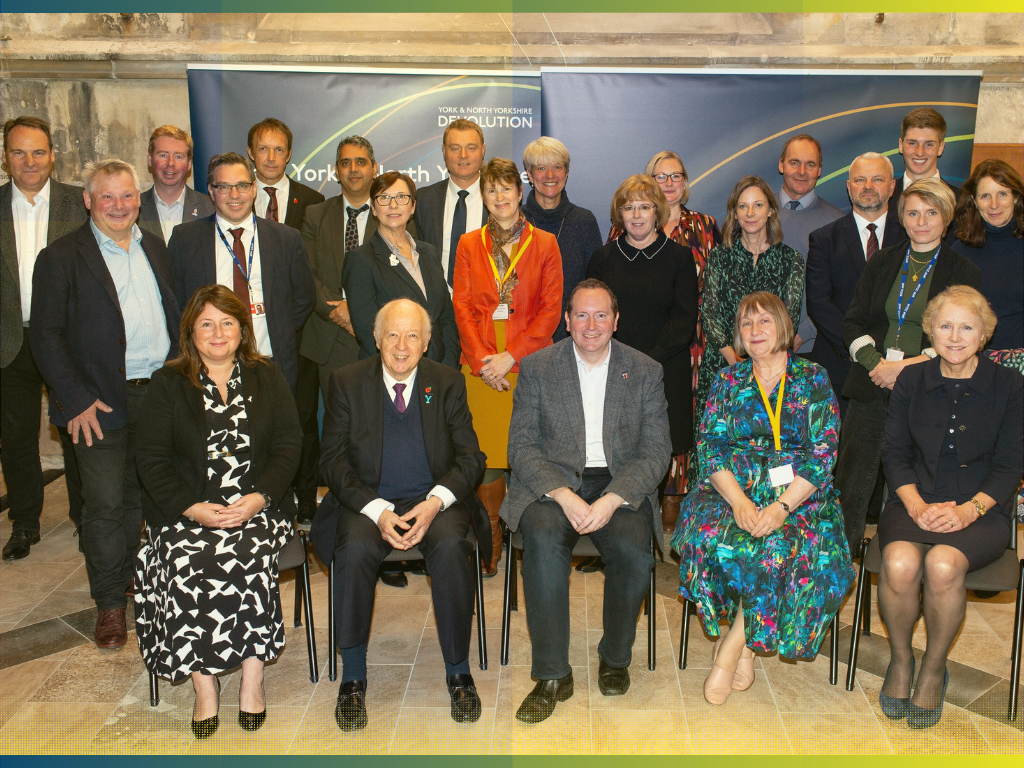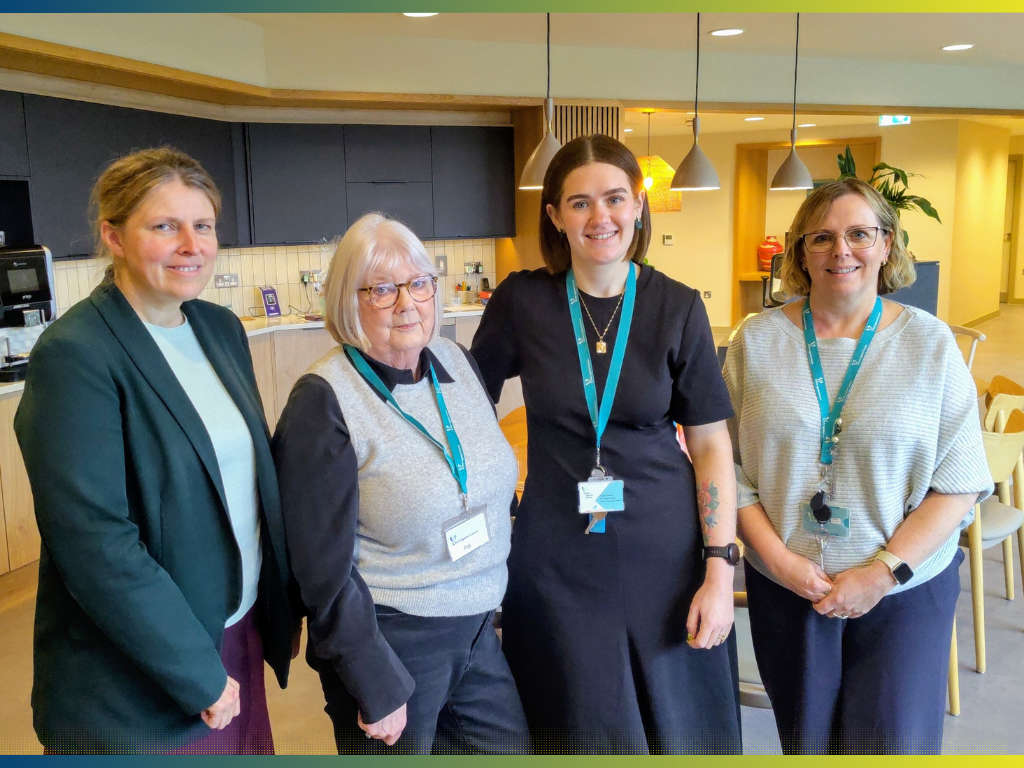
Widespread support from leading organisations and the public has been gathered as the Government is set to be asked to forge ahead with plans to bring a host of benefits including new jobs, more affordable housing and measures to tackle climate change to North Yorkshire.
Hundreds of residents, businesses and charity and voluntary organisations took part in the biggest public consultation ever undertaken by councils in North Yorkshire to collect the public’s views on a proposed devolution deal.
Members of North Yorkshire County Council’s executive will meet next week when they are due to endorse plans to send the results of the public engagement to Ministers to progress proposals to create a mayoral combined authority, which is due to be established towards the end of this year.
The combined authority is set to be overseen by an influential metro mayor elected under the proposed devolution deal, co-ordinating key strategic projects ranging from major transport improvements and boosting skills and education to providing more affordable housing in York and North Yorkshire.
Members of the county council’s executive will meet on Tuesday next week (February 14) to discuss a report outlining the consultation results. If they approve the report, it will be discussed at a full council meeting later this month before a decision is made to send the results to the Government.
The leader of North Yorkshire County Council, Cllr Carl Les, said: “The prospect of a devolution deal for York and North Yorkshire is a huge opportunity that will bring benefits to hundreds of thousands of people that will be felt for generations to come.
“We have the opportunity to take a greater control of our futures, with greater prosperity through new jobs and better skills and education and the chance to tackle long-standing issues such as a lack of affordable housing and the growing threat of climate change.
“To have so many people taking part in the public engagement is very welcome, as it shows the interest that is there on the proposed devolution deal. The responses will be carefully considered by the county council before a decision is taken to submit the results of the engagement to the Government.”
The engagement was conducted under the Let’s Talk banner, which asked for the public’s views on the proposed devolution deal as well as how the new North Yorkshire Council, which will launch on April 1, will serve local communities and also its financial priorities.
A total of 1,943 people completed the survey in full for the devolution element of the public consultations, expressing views on a range of topics including housing, transport, skills and employment and climate change. The response rate is understood to have compared favourably to other devolution engagement campaigns with the public elsewhere in the country.
The eight-week consultation was launched on October 21 and ran until December 16 last year, and views were gathered through face-to-face engagement events, an online survey and via letters and emails. A concerted effort was made to engage with as many sections of society, including the younger generation and communities across North Yorkshire, and documents were available in nine different languages including Arabic, Kurdish, Romanian, Polish Ukrainian and Bengali.
Most respondents were generally in favour of the proposed governance of the devolution deal, with organisations including the Tees Valley Combined Authority, the York and North Yorkshire Local Enterprise Partnership (LEP) and the Yorkshire Food, Farming and Rural Network recognising that it is a tried and tested model for building strong local leadership with new powers.
A total of 54 per cent of respondents online either strongly supported or supported the proposed governance of the mayoral combined authority, while 32 per cent were opposed or strongly opposed with the remainder not expressing a view or stating they did not know.
The Mayor of Tees Valley, Ben Houchen, highlighted successes in Teesside using devolved adult education budget to support residents with skills that businesses need and creating employment opportunities.
The majority of responses were positive about the transfer of powers under the proposed devolution deal and the potential to look at transport in a broader strategic way. Organisations including Community First Yorkshire, East Riding of Yorkshire Council and the LEP highlighted how taking a strategic approach as to how York and North Yorkshire connect to neighbouring areas could benefit economic growth across the region.
The public engagement also highlighted that affordable, low-carbon housing should be made a priority under the proposed devolution deal. Several organisations, including Zero Carbon Harrogate and Northern Power Grid, suggested that zero carbon or low-energy housing should be a formal requirement as part of plans. The Government agency, Homes England, said it is keen to work with the mayoral combined authority to increase local housing supply.
Work to curb climate change that is due to be introduced through devolution was welcomed, especially to reduce carbon dioxide emissions as well as promoting more sustainable transport.
Both the University of York and BioYorkshire, which is overseeing a 10-year plan for sustainable innovation, saw themselves as useful allies for the mayoral combined authority for both economic growth and achieving net zero targets for carbon dioxide emissions. The two organisations also strongly supported the net zero, climate change and natural capital delivery commitments that have been set out in the proposed devolution agreement.
The Yorkshire Food, Farming and Rural Network also recognised that the food and farming sectors have a major contribution to make towards the ambition of reducing carbon emissions to net zero.
A total of 63 per cent of respondents online either strongly supported or supported plans for the proposed combined authority to work with the Government on climate change, while 23 per cent were opposed or strongly opposed with the remainder not expressing a view or stating they did not know.
However, concerns were expressed by some members of the public about ensuring the mayoral combined authority remains democratically accountable to the electorate, especially as it will serve such a vast area across England’s largest county. Other respondents voiced reservations that a top tier of local government was being introduced with the combined authority over-arching both the new North Yorkshire Council and the existing City of York Council.
But Cllr Les, who will assume the leadership of North Yorkshire Council from April 1, said: “The mayor is due to be elected by residents of York and North Yorkshire so they would be directly accountable to the electorate at the ballot box. Beyond that, their activities will be scrutinised by an overview and scrutiny committee.
“As devolution has progressed in other parts of Yorkshire - there are deals already in place in West and South Yorkshire - we do not want York and North Yorkshire to be left behind. The mayoral combined authority will work closely with both the new North Yorkshire Council and City of York Council to listen and ensure the views and priorities of communities and businesses across the whole area are represented.”
The full results of the public engagement on the proposed devolution deal can be found at Appendix 1 - Consultation Outputs Report.pdf (northyorks.gov.uk)


 Gelato Lounge in Market Weighton Gets Zero Hygiene Rating
Gelato Lounge in Market Weighton Gets Zero Hygiene Rating
 MP Visits York Against Cancer's Leveson Centre
MP Visits York Against Cancer's Leveson Centre
 YorKAOS Art Exhibition
YorKAOS Art Exhibition
 York driver warns of 'potholes and craters' on this road
York driver warns of 'potholes and craters' on this road
 York Residents’ Festival records biggest year yet with surge in offers and online engagement
York Residents’ Festival records biggest year yet with surge in offers and online engagement









